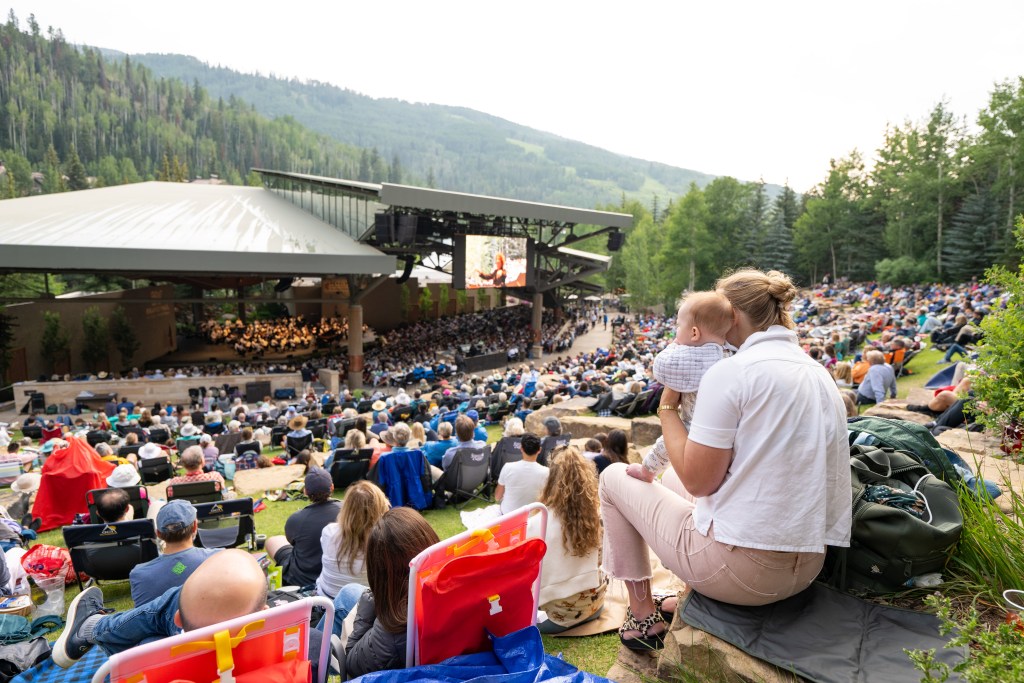Classical music in Colorado transforms during the summer months, offering a unique experience for both audiences and musicians. As concertgoers arrive at open-air venues, they bring picnic baskets and an air of relaxation, creating a festive atmosphere that starkly contrasts the formalities of winter performances. This seasonal shift not only alters the audience but also the venues, moving from traditional opera houses to outdoor settings such as tents and amphitheaters.
The casual vibe of summer concerts allows families, including those with young children, to enjoy classical music in a more welcoming environment. While some elements of etiquette remain—timeliness and appropriate applause—there is a noticeable decrease in the rigidity often associated with winter performances. This shift invites newcomers to experience the art form, contributing to a broader appreciation of classical music.
Yet, the outdoor setting presents challenges. Musicians often contend with environmental distractions, including noise from aircraft, insects, and inclement weather. These factors can complicate performances, making the experience for both artists and attendees quite different from indoor concerts.
Musicians Adapt to Summer Venues
For musicians, summer performances require adaptation. Renowned conductor Peter Oundjian, who leads the Colorado Symphony in winter months at the Boettcher Concert Hall, shifts to the Colorado Music Festival in Boulder during the summer. This festival, which takes place at the historic Chautauqua Auditorium, offers a rustic charm that enhances the concert experience. Oundjian appreciates the natural surroundings, stating, “We feel very fortunate to have Chautauqua because it’s such a beautiful experience just to walk in there.”
Summer festivals, such as the Aspen Music Festival and Bravo! Vail Music Festival, require musicians to travel to various locations, each with its unique set of conditions. These events often draw audiences who may be unfamiliar with classical music, adding an element of unpredictability to performances. For example, the Colorado Symphony will perform with pop star Beck at Red Rocks Amphitheatre on July 25, 2025.
The varying conditions at outdoor venues can impact musicians’ preparations. Unlike formal concert halls, many summer locations lack dedicated warm-up spaces. Oundjian notes, “Basically, you don’t have anywhere really to warm up, except on stage.” This situation can lead to an adjustment period for performers, who must acclimate to the atmosphere while still delivering high-quality performances.
Embracing a Casual Atmosphere
Despite the challenges, the relaxed ambiance of summer concerts allows musicians to connect with audiences in a more intimate manner. As Oundjian explains, while performers always come prepared to deliver their best, the casual setting encourages them to embrace a more laid-back approach. “It’s a much more casual thing,” he states, reflecting on how the environment influences their performance style.
The impact of this transformation extends beyond the musicians. The sense of community at outdoor events fosters a shared enjoyment of the music, making classical concerts accessible to a broader audience. Families and friends gather, often with food and drinks in hand, creating a festival-like atmosphere that enhances the overall experience.
As the summer season unfolds, the classical music scene in Colorado continues to thrive, promoting not only the joy of music but also an appreciation for the beauty of the natural environment. The combination of stunning venues and relaxed audiences contributes to a refreshing take on classical music, inviting new listeners to join in the celebration.
As classical music evolves to embrace the spirit of summer, Colorado stands out as a vibrant hub for both seasoned aficionados and newcomers alike. The season offers a unique opportunity for audiences and musicians to connect in a setting that celebrates the art form while remaining attuned to the joys of nature and community.
